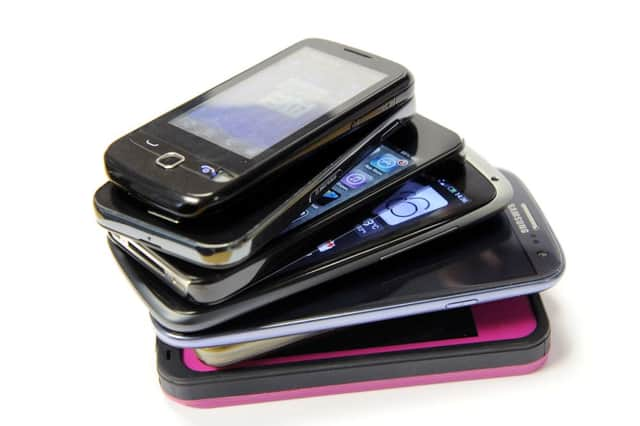Illegal trade in minerals fuelling sexual violence


MATERIALS used in your mobile phone and laptop could be fuelling sexual violence and war in places like the Democratic Republic of Congo, Burma and Colombia.
Trade in minerals such as tin, tantalum, tungsten, coltan and gold provides funding for some of the world’s most brutal conflicts. In Colombia, a country that has seen 5.9 million people displaced by violence over the last 50 years, 80 per cent of the human rights violations happen in areas where there are minerals and oil. Illegal armed groups benefit from the trade in minerals, with the Revolutionary Armed Forces of Colombia (FARC) estimated to raise to 20 per cent of its funds from Colombia’s gold trade.
Advertisement
Hide AdAdvertisement
Hide AdIn the eastern regions of the Democratic Republic of Congo the trade in minerals has fomented violent conflict in North and South Kivu for almost a decade and a half. Rebels and members of the national army have made millions of pounds through illegal taxation and control of the trade while inflicting appalling suffering on local people.
SCIAF works in the region, helping women and children affected by sexual violence.
According to Teresa Mapenzi, who works for one of our partners in South Kivu, the trade has a huge affect on the population: “The impact on our community is terrible. The rebels come to the village at night with weapons. Many people are taken hostage. Men are forced to dig for the coltan and gold, and women are used as sexual slaves and cooks. Forced from their homes, children cannot go to school because they are made to work in the mines.
“It is widespread. In the areas where we have conflict there are no rules and no control from the authorities – some are even profiting.”
The global trade in these minerals was worth around €127 billion (£92m) in 2013, with the European Union (EU) responsible for almost a quarter of this trade. Yet there is no EU law requiring companies to get minerals responsibly by tracking whether the materials used in mobile phones, laptops, cars and other products have fuelled violence.
In March 2014, the European Commission published a proposal for a voluntary self-certification scheme open to around 300-400 companies that import tin, tantalum, tungsten and gold mineral ores and their metals into Europe.
However, SCIAF and others including Global Witness and the CIDSE alliance of European and North American Catholic development organisations strongly believe that this voluntary scheme should be replaced by a mandatory requirement for companies to carry out and report publicly on their supply chain due diligence efforts.
Next month we will be urging people in Scotland to lobby their MEPs, to strengthen European legislation in May.
Advertisement
Hide AdAdvertisement
Hide AdGovernments outside the EU have already introduced legal requirements for companies to manage minerals supply chains. The 2010 US Dodd Frank Act requires companies listed with the Securities and Exchange Commission (SEC), including European firms, to do checks on their supply chain to determine whether the minerals they use have funded armed groups in DR Congo.
Even though this legislation only relates to DR Congo, it demonstrates that regulation can compel companies to clean up their supply chains.
This legislation is beginning to make a difference. MEPs must ensure that the EU does not lag behind.
SCIAF and others are witness to the devastation caused by the deadly trade in conflict minerals. It’s time we all knew where the materials in our phones, laptops and other electronic devices come from. Only then can we be sure that we’re not supporting violence against women, war and the widespread abuse of human rights.
• Alistair Dutton is the Director of the Scottish Catholic International Aid Fund (SCIAF)